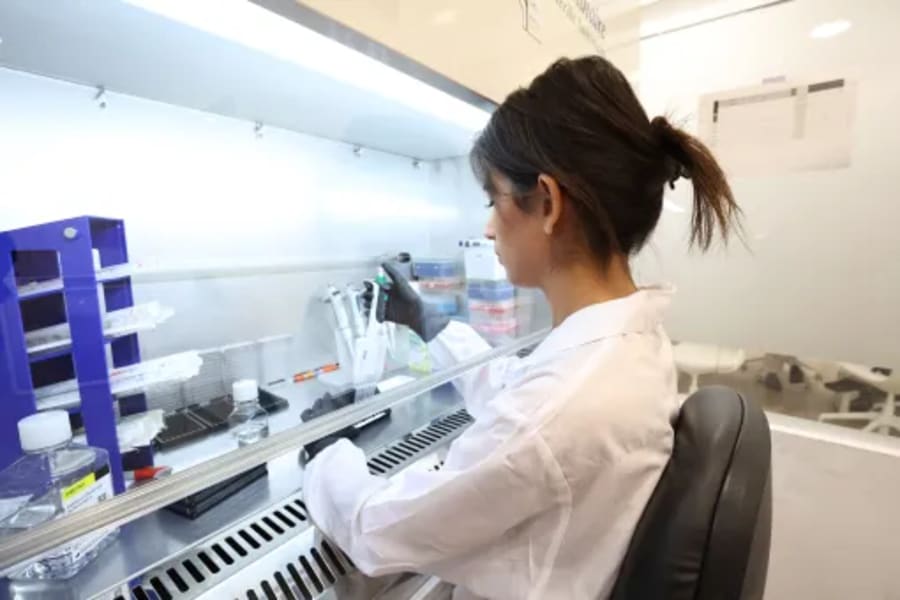Israeli scientists announce new breakthrough in treatment for depression

Many who have suffered with depression know the hard slog of trying to find the right medication through a hit-and-miss process that can take years. Now, a breakthrough in neuroscience announced this week in Israel could allow doctors to assess a patient’s responsiveness to medication much more quickly, the Times of Israel reported.
Israeli neuroscientists Dr. Talia Cohen Solal and Dr. Daphna Laifenfeld have discovered an innovative blood test to measure the responsiveness of a patient with major depressive disorder to common antidepressants. The neuroscientists, part of Israeli health tech startup NeuroKaire, began offering the blood test in Israel and the United States this week.
Approximately three million Israeli adults (one-third of the population) are experiencing post-traumatic stress disorder (PTSD), depression, or anxiety as a direct result of the war precipitated by Hamas on Oct. 7, 2023, according to a report from the State Comptroller’s Office.
This breakthrough could bring welcome relief to many who are struggling to find the right medication for their symptoms.
“Depression is reduced connectivity in the brain, often expressed in a lack of motivation,” Cohen Solal explained. “With our brain in a dish platform, we have a window into the brain and can analyze how well those neurons are connecting or communicating after exposure to antidepressants, and we turn that into a quantitative readout for how strongly a drug has affected connectivity in those samples.”
Prof. Mark Weiser, who heads the Psychiatry Department at Sheba Medical Center, has been involved in the study and said additional research and trials will help determine just how effective it can be.
Cohen Solal and Laifenfeld bring decades of research and experience: Cohen Solal has studied psychiatric disorders at Oxford University, University College London, and Columbia University, while Laifenfeld has conducted brain research at Israel’s Technion and Harvard and spent more than 20 years working in personalized medicine.
“For far too long, patients with clinical depression have endured a grueling trial-and-error process before finding an effective treatment,” Cohen Solal said, according to the Times of Israel. “Around one-third of the time, a patient improves or recovers from depression when seeking treatment, and around two-thirds of the time, physicians will need to change their medication or dosage multiple times.”
“Typically, the guessing game of identifying the right drug for a patient with clinical depression can take between 12 to 18 months. We are bringing that down to two months,” she added.
“NeuroKaire’s unique combination of stem-cell technology, genomics, and AI represents an evolutionary step forward from traditional pharmacogenetics and is promising, but it is still early days, and more research needs to be done in large clinical trials with hundreds of patients, comparing the outcomes with those that haven’t taken the test, and further improve results for patients,” Weiser explained.
The startup announced that the U.S. Centers for Medicare & Medicaid Services (CMS) recently granted regulatory approval for its blood-based screening tool, BrightKaire – the first clinically deployed test based on neurons derived from blood.
The blood test is now available in both Israel and the U.S. for $1,000.
“We have around 100 active prescribing psychiatrists at present,” said Cohen Solal.
“Israel has fantastic life sciences and neuroscience PhDs, which is wonderful for hiring great R&D scientists,” she continued. “It’s a mission of ours because of Israel and because of the war to launch this test here as well, and we are very happy to be able to help in this time of need.”
Laifenfeld previously served as head of Precision Medicine at Israel's Teva Pharmaceuticals and the researchers spoke about the importance of the discipline in their work.
“NeuroKaire’s mission is to bring precision medicine to the brain,” Cohen Solal said. “Next year, we will be starting our studies in ADHD. That’s going to be our next indication.”
Approximately 330 million people suffer from depression worldwide, making it one of the most common types of mental disorders.

Jo Elizabeth has a great interest in politics and cultural developments, studying Social Policy for her first degree and gaining a Masters in Jewish Philosophy from Haifa University, but she loves to write about the Bible and its primary subject, the God of Israel. As a writer, Jo spends her time between the UK and Jerusalem, Israel.
You might also like to read this:

















